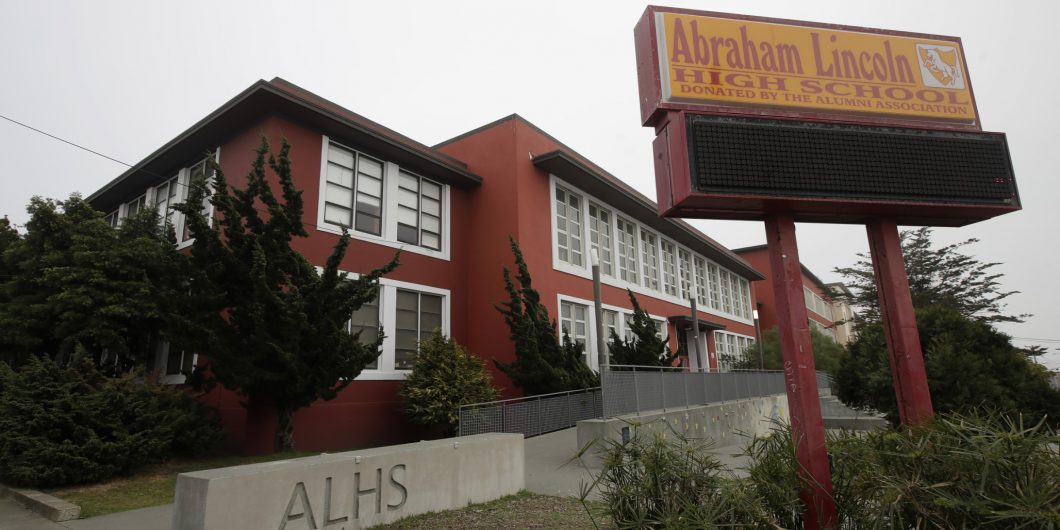America's principles can be sustained only through the existence of an independent nation-state, whose citizens enjoy the responsibility to preserve them.
Scenes from a Cancellation
The San Francisco School Names Advisory Committee, meeting by Zoom to expunge the impure from the rolls of public honor, comes to Paul Revere K-8. Does Revere meet the Committee’s criteria, the chair asks? Yes, one member declares. He “stole indigenous lands.” The chair asks for evidence, since Revere was a silversmith best known for warning of the British invasion. “It’s more about the storyline,” the member counters. Revere represents America, America represents oppression. Wait, the chair replies, the criteria speak of individual sins, not storylines.
Then a Perry Mason moment: “I just found something right now,” the member announces, apparently Googling in real-time. Revere, an artillery officer in the Penobscot Expedition, was “directly connected” to colonizing the lands of the Penobscot Nation, one of whose members, we helpfully learn, was later the first person of color in Major League Baseball. But back to business. “I found it on history.com, which is pretty credible.” Case closed. Revere canceled. (The Penobscot Expedition was a naval armada sent by Massachusetts against the British in 1779. Fighting occurred around the Penobscot River. It had nothing to do with the Penobscot Nation. Whatever.)
More scenes: Pressing through the list of school names, time is short. The question, the chair asks, is simply whether a given school meets criteria. Yes or no—give one reason. Sanchez Elementary. “Colonizer, California missions, blah blah blah,” a member says. Seriously. Canceled. Progress is nothing if not brutally efficient. (They had the wrong Sanchez.)
Then we come to what may be the most revealing case: Thomas Edison Charter Academy. Does he meet criteria? Yes. How does he meet criteria? “Thomas Edison had a fondness for electrocuting animals,” including “Topsy, a well-loved circus elephant at this time.” How does that meet criteria? A moment of confusion, a request to see the list, a grasp for the criterion regarding people connected to “environmental abuses.” Fleeting debate. Edison earns a question mark. (He also had nothing to do with the electrocution.)
Follow the Criteria
Last week, Gabriela López, president of the Board of Education of the San Francisco Unified School District, announced under a hail of criticism and a recall effort that she was pausing the work of the renaming committee so the district could focus on its reopening plans. When the committee reconvened, she promised, it would consult local historians and encourage more deliberation. What difference deliberation will make is unclear. When The San Francisco Chronicle polled its readers on which schools on the list should be renamed, Abraham Lincoln High School got 118 votes, around the middle of the pack. (Dianne Feinstein Elementary School topped the list. As mayor of San Francisco, she replaced a vandalized Confederate flag that was part of a collection of historical banners at City Hall.)
Nor is there any particular reason to believe historical expertise will help. Yes, there is something especially Dadaist about the committee mistaking the Penobscot River for the Penobscot Nation and sticking to its story even after the error was noted. But expertise is more the problem than the solution.
What the committee exhibited was less unreason than the desiccated, mechanical techne that Michael Oakeshott called Rationalism. The only cure for that is something a committee rigorously applying preset criteria to the totality of human lives cannot accommodate: prudence.
That was the significance of the Edison case. The committee was actually trying to apply its criteria fairly. It thought the matter over. Was electrocuting Topsy an environmental abuse? The question was complicated by the fact that the committee appears earlier to have considered and rejected animal abuse as a criterion for cancellation. But because those criteria were concerned only with whether the namesake of a school had ever committed one of the mortal sins—and, again, even the elephant episode is a myth—there was no effort to assess the whole of Edison’s life.
The categories used by cancellers, and the Rationalist application of them, share a Manichean approach to what is actually a complicated thing: human life.
The criteria the committee used for renaming schools were these: “Anyone directly involved in the colonization of people”; “Slave owners or participants in enslavement”; “Perpetuators of genocide or slavery”; “Those who exploit workers/people”; “Those who directly oppressed or abused women, children, queer or transgender people”; “Those connected to human rights or environmental abuses”; “Those who are known racists and/or white supremacists and/or espoused racist beliefs.”
Some of these are shifting categories. The new ideology of antiracism, for example, holds that anyone who does not actively embrace its tenets is racist. Others are all-encompassing. The meeting was conducted by Zoom. Were any of the computers involved made with exploited labor? Were any fossil fuels burned to generate the electricity used?
All the categories, and the Rationalist application of them, share a Manichean approach to what is actually a complicated thing: human life, which grows all the more complicated when human beings are placed, as we ever have been, in society with one another. None of us is personally pristine. No citizen possibly can be because a citizen cannot act on his or her private moral inclinations alone.
And statesmen, after whom schools are apt to be named, are more complicated still because the choices they face always involve tradeoffs. Crucially, these are tradeoffs made on behalf of other people. Statesmen do not have the luxury of doing what is simply and purely “right” both because that is rarely attainable and because they are trading not on their private moral stock but rather hazarding the wellbeing of others. For statesmen, moral purity is inseparable from self-indulgence.
Consequently, the practice of judging human beings, especially those involved in political life, inevitably involves what the Rationalist cannot tolerate but the craftsman cannot live without: nuance. The Rationalist, seeking a mechanical standard, has no choice but to distill the complex to the pristine, and in this case, that means reducing the whole of a human life to the moment of a person’s worst sin.
The most chilling feature of the renaming committee’s deliberations was the group’s utter disinterest in whether any of the accused possessed any virtues. Simply “meeting criteria”—any of them, even once—was sufficient. There are people who should not be honored despite having had virtues: those who are known to history only for their sins. But there are others who should be honored despite having had defects because, in the balance, we appreciate the good they have done.
A War on Nuance
Might we also appreciate the legacy of complexity these figures leave us? Might there not be some joy in the idea that human life is complex—some celebration in a heritage that enriches us because it demands that we grapple with complications? What meaning is there in a politics that is reducible to a checklist, to whether the whole of a human life, especially a public life, “meets criteria”?
Cancellation is a war less on heritage or heroism than on nuance. Without nuance, there may be Rationalism, but there cannot be politics. Rationalism, rather, is a form of administration, and as a form of administration untethered to politics, it is inherently prone to abuse. It may be said that the foolishness in San Francisco is all harmless woke fun. It is not, and not simply because it erects a standard according to which a society can only look forward, never back—a standard that calls into question whether a society can cohere at all.
The greater problem is the technique. The renaming committee is important because it represents a broader rejection of nuance that will lead to the cancellation of us all, including the cancellers. It will lead to a further polarization of society—one is tempted to say it is intended to—because it fractures us into those who identify wholly with important historical figures and those who are wholly offended by them. It is an attack on the concept of citizenship because it deprives citizens of the essential duty of civic life: talking with one another about the good.
There is no room in this paradigm for talking to one another. That is what politics is. It assumes difference, since a society with baked-in agreement on all issues would not, strictly speaking, be political. By contrast, an administrative Rationalism that identifies and imposes the good is anti-political because it does not engage political animals in its pursuit. More than that, such a paradigm—which rejects the duty to be open to the views of another, to be willing to accommodate one’s personal preferences to something truly common—is almost certain to choke on its own arrogance rather than arriving at the actual good. On the way, it is likely to choke dissent.
Oakeshott warned of Rationalism’s dangers: its propensity for self-intoxication; its hostility to limitation. Witness the disposition of some members of the renaming committee simply to assume the guilt of historical figures and to dig up the evidence afterward. But there is something else to say. Rationalism is joyless. It can be done as well by an algorithm as by people. It may signal virtue, but it does not actually entail any. Virtues extract sacrifices. Civic virtue involves trimming one’s own desires to the public good.
There is a healthy way of celebrating diversity. Difference makes the public good—both the sacrifices it requires and the benefits it confers—meaningful. But in the Manichean ethos, there is no public good, or rather there is no public means of pursuing it. If we are all the same—and all mechanistic executors of a good decided by our betters—we neither give nor receive anything meaningful. The San Francisco approach abandons the most necessary condition of the public—nuance—in favor of a false moral precision that sacrifices true diversity to beguiling simplicity.



